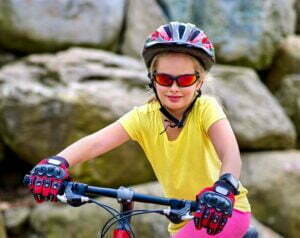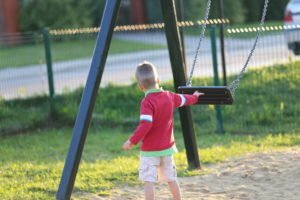Having friends is not only essential to having a good transition to kindergarten, but also to lifelong success and satisfaction. Some children make friends without even thinking about it, but for many children, learning how to make (and keep) friends is a complex skill. The good news is that, with a little coaching and support from their parents and teachers, friendship skills are absolutely “learn-able”. Here are 3 essential skills for 5 – 6 year olds, give or take a year depending on development. (It is great to start teaching and talking to younger children about friendship skills, but it is also good to remember that some of these skills are not developmentally appropriate for 2-, 3- or even some 4-year-olds so if they struggle to share, have patience. This is just part of normal development.)
The first part of making friends is to either ask to play with someone else, or for them to ask you… or sometimes just standing in the general vicinity certainly works. Once they get invited to a game, kids need to be able to cooperate to keep playing. What does cooperation mean? Sharing and being friendly while you do something together. Let’s talk about each one of these skills and give you some ideas for how to teach and encourage your child to practice these.
- Asking to join a game/asking others to join. We see kids playing together every day and it looks so easy sometimes that we forget that it takes skill to learn how to move smoothly into playing with another person. If a child would like another child to play, she has to figure out how to ask the other child and get him interested in the game. If a game is already going on, she has to figure out how to join without interrupting the flow.
A good way to help children with this is to give them some words to use with other kids, like “Would you like to play with me?” or “I would like to play on the swings (or slide, or any other activity), do you want to come with me?”
If a game is already happening, he can say something like “Can I play with you, too?” or “I know how to play basketball (or four-square or whatever the activity is). Can I play, too?” It may be important to let your child know that he needs to wait for a break in the game to ask rather than just barging in and stopping the action.
It is also a a good idea to prep your child for what she could do if someone says “no” when she asks them to join her or to join their game. We have good suggestions for how do this here.
- Sharing/turn taking. Sharing is such an important skill for keeping positive social activities going. But it’s a great big word. There are so many things that we can share: space and materials, ideas for what game to play, opportunities to take on certain roles in the game, and even time for talking during the game. It is a good thing to prep children for sharing before they are going to have to do it. Check out our post on how to pre-teach kids to share for tips on how to explain sharing to children.
- Being friendly. Here is another big topic. There are lots of different ways to be friendly (and we are going to be posting about some of them this month). When a child is just meeting a new potential friend, one of the best ways to be friendly is to smile and say “Hi. My name is . What is your name?” Kids can also notice something about the other child and give a compliment such as “I like your blue shirt. My favorite color is blue.” For more ideas on helping your child to talk with other children, check out our post on how to have friendly conversations.
As you can see, a lot goes into even a simple game of tag. So let’s remember to give our kids high-fives and praise for being able to be friendly, share, and join in games with other kids. Those are super social skills!
[divider type=”standard” text=”Go to top” full_width=”no” width=”1/1″ el_position=”first last”]
Text: © Kids In Transition to School 2019
Image: © Kids In Transition to School 2019





